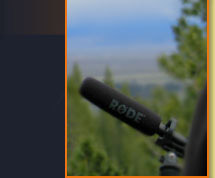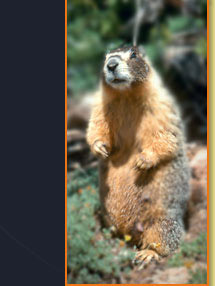People who stop by often double take at the pile of books on my coffee table. Right now, stacked about half foot deep are: Storm Over Mono, Cadillac Desert, Edens Lost & Found, Shaping The Sierra, The Seven States of California, and Geologic Trips in the Sierra Nevada. I have to own up: with each passing day I become more of a California Studies geek. More specifically, a Sierra Nevada Studies wonk wannabe. I'm fascinated with pretty much all things Sierra and since so much of California history (and current resources) are bound up with the range...there is a lot to learn.
One area that I've been exploring is ranching in the Sierra. The interplay between economics and environment with some heritage and culture tossed in. My family on my mother's side are all farmers/ranchers, and I spent most of my summers and holidays on my grandparents' ranch. While my grandfather never complained about "those environmentalists" everyone else sure did. And since I've been a card carrying member of the Sierra Club since High School (along with a few other wilderness and wildlife organizations), the faces and eyes usually turned toward me when the rants began. I pretty much tuned them out, thinking my people were out-of-touch reactionaries that needed to get into town more often. I couldn't really understand or relate to their anger and frustration towards people like me, urban and suburbanites who didn't spend much time working the land but wanted to have wide open spaces and healthy environments to play in.
But I'm starting to get it. I just finished Home Land: Ranching and a West That Works (it had finally floated to the top of my stack of books) which is a collection of essays focused on the ranch lands, ranch people and ranch culture written by ranchers, rural poets, and conservationists. The book celebrates the new "radical center" into which former adversaries are now gravitating (i.e., ranchers and enviros). That's great.
For me though, what really comes through in this book is the bad blood between ranchers and environmentalists that has existed for years, particularly over grazing on public lands (i hadn't heard the slogan "Cow Free by '93" before, but evidently it was in fashion for awhile among some groups). The book helped give me a sense of the disconnect between rural folks and their urban and suburban counterparts. It gave me some insight into rural residents distrust of city folks and why they might be justifiably angry at the broader environmental movement. That is not a perspective I find in most of the books I come across. I can't say it's the most stellar writing or compelling compilation of essay, but I do appreciate how Home Land gave me a deeper sense of the backstory of all the vitriol that flew in both directions during the 80s and 90s between the rural ranching communities and the urban/suburban based environmental activists.
I feel like I have a better sense of what my family was getting so upset about those many years ago. Now I would probably have more empathy and understanding, though knowing me and my relatives--I doubt we'd still see eye to eye even today.
Circling back to this project that I'm now working on, Saving The Sierra: Voices of Conservation In Action, which is grounded in amplifying the voices of people coming together, across divides, to conserve the natural and cultural resources of the "range of light", a quote from the book stands out. It's Tony Malberg of Twin Creek Ranch: "I realized that if I'm going to survive the twenty-first century, I need to be trilingual...Ranchers tell stories. The BLM wants to talk data. And then there is the environmentalists...To connect with them you need to use poetry." (p. 116)
Reminds me that we all speak and listen differently at different points along our journeys. I'm trying to keep my ears and mind open while becoming trilingual.
















